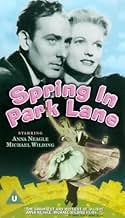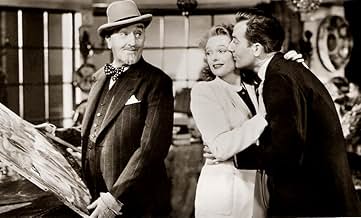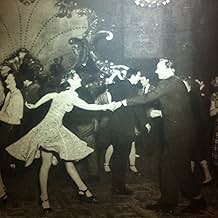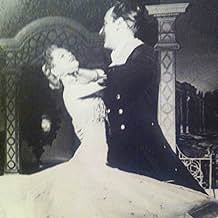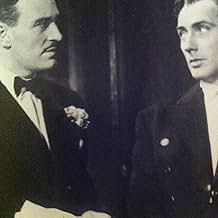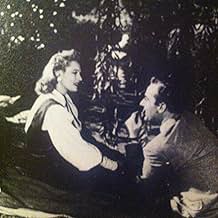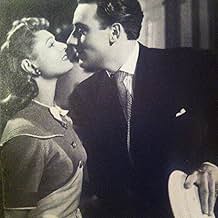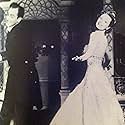AVALIAÇÃO DA IMDb
7,1/10
293
SUA AVALIAÇÃO
Adicionar um enredo no seu idiomaA diamond merchant's niece falls for his new footman who is really an impoverished aristocrat.A diamond merchant's niece falls for his new footman who is really an impoverished aristocrat.A diamond merchant's niece falls for his new footman who is really an impoverished aristocrat.
- Direção
- Roteiristas
- Artistas
- Prêmios
- 2 vitórias e 1 indicação no total
Cyril Conway
- Antique Dealer
- (não creditado)
Guy Deghy
- Porteus - Dinner Guest
- (não creditado)
H.R. Hignett
- Higgins
- (não creditado)
Tom Walls Jr.
- Bates
- (não creditado)
- Direção
- Roteiristas
- Elenco e equipe completos
- Produção, bilheteria e muito mais no IMDbPro
Avaliações em destaque
When this film was released this country was in the grip of austerity so the sight of people living seemingly in another world of plenty was very appealing
A British romantic comedy; A story about a nobleman hiding from his relatives by working as footman in a Mayfair residence. He falls in love with the niece of the owner, a wealthy diamond merchant and art collector. This film is well directed, delivering sufficient escapism and glamour and the dialogue is witty and funny. The chemistry between Wilding and Neagle is positively charged. The set design is brilliant and the dancing set pieces are splendid. The film has fine musical arrangements for traditional melodies 'Early One Morning' and 'The Moment I Saw You'. As an aside, the film was the most successful British film of the twentieth century in terms of UK box office admissions.
What an accomplished team Anna Neagle and Michael Widing were.They must have known each others acting styles intimately.I have them on DVD/video in "The Courtneys of Curzon Street", "Piccadilly Incident" and the subject film.The mode is light romantic comedy a style at which they both excelled so I have rated it 7/10.
An aristocrat, (Michael Wilding), falls out with his dim family and obtains the position of a footman with a posh family who live in Park Lane, an exclusive area of London.Only the butler knows Michael's real identity which he keeps secret but addresses him as "milord" whenever they are alone together.The result is that the Park Lane family are astonished by Michael's savoir-faire and knowledge of the finer things of life.Michael can play the piano well and spot an art forger at 100 paces as well as being charming and witty to the family.Soon he has become irreplaceable as an employee and Anna Neagle (who is the secretary of wealthy Tom Walls) begins to look to Michael for advice on non footman activities.
As time elapses Anna begins to suspect Michael is not all he pretends to be and they arrange a date together on The Serpentine so she can learn more about his background.There is an echo of the scene in "The Merchant of Venice" when Portia has to choose between three suitors.Suitor 1 is a vain self-obsessed actor.Suitor 2 is Michael's dim, boring aristocratic brother (cue comedy of Michael trying to avoid "blowing his cover").Suitor 3, Michael, appears as the poorest suitor but Anna instinctively feels he is the one.I feel sure script writers sometimes borrow and get inspiration from the classics when writing their screenplays.Another of the footman's accomplishments is dancing and the two have a very romantic dreamlike dance together.That's all of the plot I will reveal.This film is readily available so I urge all Wilding/Neagle fans to go out and buy this for their collection.
An aristocrat, (Michael Wilding), falls out with his dim family and obtains the position of a footman with a posh family who live in Park Lane, an exclusive area of London.Only the butler knows Michael's real identity which he keeps secret but addresses him as "milord" whenever they are alone together.The result is that the Park Lane family are astonished by Michael's savoir-faire and knowledge of the finer things of life.Michael can play the piano well and spot an art forger at 100 paces as well as being charming and witty to the family.Soon he has become irreplaceable as an employee and Anna Neagle (who is the secretary of wealthy Tom Walls) begins to look to Michael for advice on non footman activities.
As time elapses Anna begins to suspect Michael is not all he pretends to be and they arrange a date together on The Serpentine so she can learn more about his background.There is an echo of the scene in "The Merchant of Venice" when Portia has to choose between three suitors.Suitor 1 is a vain self-obsessed actor.Suitor 2 is Michael's dim, boring aristocratic brother (cue comedy of Michael trying to avoid "blowing his cover").Suitor 3, Michael, appears as the poorest suitor but Anna instinctively feels he is the one.I feel sure script writers sometimes borrow and get inspiration from the classics when writing their screenplays.Another of the footman's accomplishments is dancing and the two have a very romantic dreamlike dance together.That's all of the plot I will reveal.This film is readily available so I urge all Wilding/Neagle fans to go out and buy this for their collection.
This was the most popular movie in Great Britain the year it was released and still holds the record for most tickets sold in Britain by an all-British production. It was so popular that a poll the following year had Miss Neagle the most popular movie star in Britain: the first time in more than a decade the title went to a British subject.
The story, as well as Miss Neagle were crowd-pleasers. It offered to its audience the happy thought that in the post-War era, Park Lane contains rich young ladies who would gladly marry their footmen -- assuming, of course, they look like Michael Wilding and are actually down-on-their-luck aristocrats.
Miss Neagle's wealth comes from her diamond-dealing uncle, Tom Walls, in a fine performance. The rather tepid plot is eked out by two good dance sequences, one song by Miss Neagle, and a subplot about stolen paintings. The mildly titillating main plot is supported by a rather arch air and the charms of the stars: Mr. Wilding is arch and Miss Neagle by the manner in which every scene with her in it is shot to spotlight her. It's clear, as always that the director, Herbert Wilcox loves Miss Neagle; they had been married five years. I suspect cinematographer Mutz Greenbaum felt the same.
The story, as well as Miss Neagle were crowd-pleasers. It offered to its audience the happy thought that in the post-War era, Park Lane contains rich young ladies who would gladly marry their footmen -- assuming, of course, they look like Michael Wilding and are actually down-on-their-luck aristocrats.
Miss Neagle's wealth comes from her diamond-dealing uncle, Tom Walls, in a fine performance. The rather tepid plot is eked out by two good dance sequences, one song by Miss Neagle, and a subplot about stolen paintings. The mildly titillating main plot is supported by a rather arch air and the charms of the stars: Mr. Wilding is arch and Miss Neagle by the manner in which every scene with her in it is shot to spotlight her. It's clear, as always that the director, Herbert Wilcox loves Miss Neagle; they had been married five years. I suspect cinematographer Mutz Greenbaum felt the same.
This is one of my favourite movies of its type. I first saw it when it first appeared (sixty years ago), and I have seen it several times in recent years. It gets better with each viewing. It has a pretty believable plot, very good dialogue, and the characters are great. I wish films like this could still be made. It has, of course, no resemblance to real life today (for which heartfelt thanks), and in fact not much resemblance to the life when it was made, but who can resist the overall pleasant atmosphere? It is sad to relate that the sequel "Maytime in Mayfair" was a complete let-down. I am at a complete loss to understand why this excellent film isn't available on DVD.
Você sabia?
- Curiosidades"Loucuras da Primavera (1948)" was the most popular film in the U.K. for the year 1948. According to the British Film Institute in 2004, it had fifth place in all-time ticket sales in the United Kingdom. As of 2017, its 20.5 million U.K. attendance was still the largest audience for any wholly British movie. It was highly rated and well received in the U.S. as well.
- Erros de gravaçãoMichael Wilding and Anna Neagle misquote the beginning of a poem by William Allingham (whose title is the same as the first line) as "Four ducks on a pond,/The blue sky beyond." It should be "Four ducks on a pond,/A grass-bank beyond,/A blue sky of spring/And birds on the wing."
- Citações
Judy Howard: Well, where is Perkins?
Lord Richard: Oh, he's butling about somewhere.
- Cenas durante ou pós-créditosAbout one-third into the movie, the screen runs credits that introduce the Borechester family: "Borechester Towers. Ancestral seat of the Marquis of Borechester. "A.D. 1100. The Normans started building the walls... "A.D. 1300. The family started hanging their pictures on the walls... "A.D. 1939. The R.A.F. took over and started scribbling on the walls... "A.D. 1947. A Stately home of England -- with the state coming nearer every budget."
- ConexõesFeatured in The Ultimate Film (2004)
Principais escolhas
Faça login para avaliar e ver a lista de recomendações personalizadas
Detalhes
- Data de lançamento
- País de origem
- Idioma
- Também conhecido como
- Spring in Park Lane
- Locações de filme
- Metro-Goldwyn-Mayer British Studios, Elstree, Herts, Inglaterra, Reino Unido(studio: produced at Metro-Goldwyn-Mayer British Studios, Ltd. Elstree-Herts, England.)
- Empresas de produção
- Consulte mais créditos da empresa na IMDbPro
- Tempo de duração1 hora 40 minutos
- Cor
- Proporção
- 1.37 : 1
Contribua para esta página
Sugerir uma alteração ou adicionar conteúdo ausente

Principal brecha
By what name was Loucuras da Primavera (1948) officially released in Canada in English?
Responda
